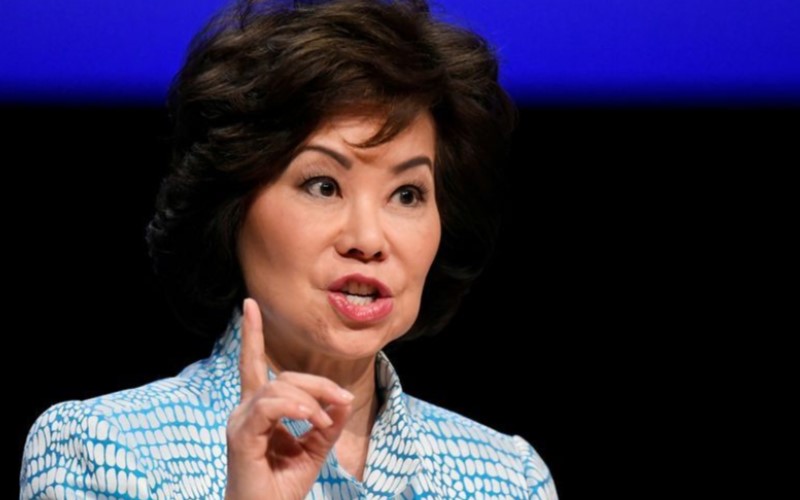
The economic impact of Boeing Co’s planned halt of 737 MAX production will not be considered by U.S. regulators in their ongoing review of when to end the grounding of a plane involved in two major fatal crashes, U.S. Transportation Secretary Elaine Chao said on Friday.
In an interview with Reuters, Chao said the White House has not pressured the Federal Aviation Administration (FAA) to speed up its review.
Chao also said the White House Council of Economic Advisers had conducted a study of the economic impact of the grounding, which forced Boeing – a critical American manufacturing company – to halt deliveries in March, and assessed that it would cause around a 0.4% reduction in U.S. gross domestic product.
“Regardless as to what the impact on GDP is, our responsibility is to ensure that the 737 MAX must be safe before it is ungrounded,” Chao said, adding that “my job is protect” the FAA from any pressure the agency might face.
The 737 MAX has been grounded worldwide since March after two crashes involving Boeing’s fastest-selling jet in Indonesia and Ethiopia killed 346 people within five months, costing the plane manufacturer more than $9 billion so far.
On Friday, United Airlines said it is extending cancellations of Boeing 737 MAX flights from early March until June. United’s announcement is the longest that any U.S. carrier has scheduled for the grounded aircraft, after American Airlines and Southwest Airlines Co cancelled flights into early April.
Chao said her directive to FAA Administrator Steve Dickson is clear: “ensure that he finds out what happened, correct the problem and do not unground until FAA feels that it is safe.”
President Donald Trump, who has touted the strength of the U.S. economy as he seeks re-election in 2020, called Boeing Chief Executive Dennis Muilenburg on Sunday to ask about the status of 737 MAX production, citing two people briefed on the matter confirmed.
Muilenburg assured Trump that the planned production halt was temporary and that the company would not be laying off any workers, the sources said. The production halt, set to begin in January, was announced by Boeing on Monday.
Reuters reported this week the FAA is not expected to end the grounding until at least February.
Chao said of Boeing: “They’ve got a tough challenge ahead of them and they owe it to the American people to ensure that their airplane is safe. And I think they want that, too.”
Boeing said on Friday it continues “to follow the lead of the FAA and global regulators, as they will determine the timeline for certification so the MAX can safely return to service.”
Chao said reforms to the FAA’s longstanding process of delegating some certification tasks to Boeing should be not be adopted until a number of reviews are completed.
“Let’s wait to see what the reports say before we act too quickly,” Chao said.
The FAA’s practice of delegating some certification tasks to Boeing has come under criticism from lawmakers and in some official reports, including the FAA’s failure to more closely evaluate a key safety system involved in both fatal crashes. The FAA is not delegating any tasks in the ongoing review.





























